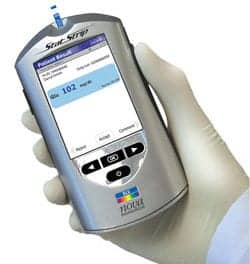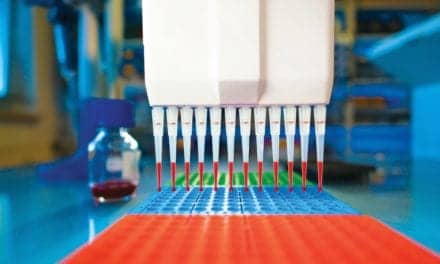Studies recently published in Clinical Biochemistry identify the precise magnitude of change in cardiac troponin required for early diagnosis of myocardial infarction (MI).1,2
Utilizing the Access AccuTnI+3 troponin I blood test from Beckman Coulter Diagnostics, Brea, Calif, researchers reported diagnostic performance results representative of what would be observed in clinical practice for early rule-in and rule-out of heart attacks.
Encompassing results from approximately 2,000 patients enrolled at 14 institutions, the study demonstrated that absolute changes in a patient’s troponin level (0.01 or 0.02 ng/mL) performed significantly better as an MI diagnostic than did relative (percentage) changes in the level. The results held true for tests conducted at all time intervals after admission to the emergency department.
“Study results suggest that the majority of patients with myocardial infarction can be identified at earlier observation times, and support consensus recommendations for an optimal blood sampling protocol with troponin measurement on admission and three hours later,” says principal investigator and lead author Alan B. Storrow, MD, vice chairman for research and academic affairs in the department of emergency medicine at Vanderbilt University. “Another key finding of the study is that rule-out (correct identification of patients without a heart attack) was nearly 100% when baseline troponin was less than the diagnostic threshold of 0.03 ng/mL and absolute delta troponin was less than 0.01 ng/mL.”
“As troponin values rose, the probability of myocardial infarction increased,” says Paula Southwick, PhD, coauthor and principal clinical research scientist at Beckman Coulter Diagnostics. “Baseline troponin values greater than 0.20 ng/mL were associated with nearly 90% probability of myocardial infarction. Earlier rule-in and rule-out may potentially save patient lives.”
Clinically proven through a large, multicenter study, Beckman Coulter’s troponin I assay is the only FDA-cleared troponin assay that complies with the agency’s October 2010 guidance to manufacturers of troponin tests.
The company’s blood test is a paramagnetic particle, chemiluminescent immunoassay for the quantitative determination of cardiac troponin I levels in human serum and plasma using the Access 2 immunoassay system or UniCel DxI Access immunoassay system to aid in the diagnosis of myocardial infarction. FDA did not evaluate the precise magnitude of change data from the postmarket cardiac troponin study as part of the product’s 510(k) clearance.
Under current clinical guidelines, MI is diagnosed after seeing a change in troponin values between samples collected in sequence following presentation to the emergency department. However, the guidelines do not specify a clinically significant level of change. Without a defined number, physicians do not have a consistent approach for diagnosing MI.
While past literature has suggested a percentage-change in troponin levels as the appropriate criterion for determining whether a patient has had a heart attack, the method has proven not to be fully reliable. Recent publications suggest that absolute values may perform better.
In this latest research, the study authors recommend moving away from a percentage-change reading and instead using an absolute difference by ng/mL change. Results of the study were published as two companion articles in a special cardiac biomarkers issue of Clinical Biochemistry.1, 2
References
- Storrow AB, Christenson RH, Nowak RM, et al. Diagnostic performance of cardiac troponin I for early rule-in and rule-out of acute myocardial infarction: results of a prospective multicenter trial. Clin Biochem. 2015;48(4–5):254–259; doi: 10.1016/j.clinbiochem.2014.08.018. Epub September 4, 2014.
- Storrow AB, Nowak RM, Diercks DB, et al. Absolute and relative changes (delta) in troponin I for early diagnosis of myocardial infarction: results of a prospective multicenter trial. Clin Biochem. 2015;48(4–5):260–267; doi: 10.1016/j.clinbiochem.2014.09.012. Epub September 28, 2014.







pretty handy stuff, overall I consider this is really worth a bookmark, thanks